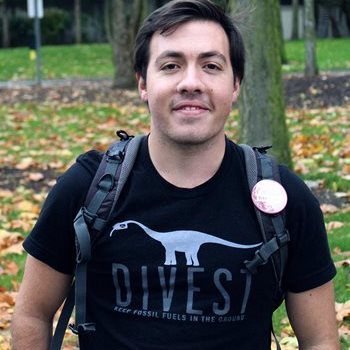
Dr Alex Lenferna
Alex Lenferna is a post-doctoral fellow at Nelson Mandela University where he is hosted by Professor Janet Cherry in the Department of Development Studies. His research focuses on understanding how a radical climate justice agenda can ensure deep transformation to South Africa – as one of the world’s most polluting and unequal countries. He also serves as secretary of the Climate Justice Coalition – a coalition of South African civil society, grassroots, trade union and community-based organisations working together to advance a transformative climate justice agenda. Previously, he worked as a climate justice campaigner with 350Africa.org – a non-profit organisation dedicated to helping build a global grassroots climate justice movement. Alex is a Mandela Rhodes and Fulbright scholar who holds a PhD focused on climate justice from the University of Washington. He has dedicated over a decade of his life to research, writing, teaching and activism on climate justice. Alex is a first generation South African whose family hails from the small island nation of Mauritius. His work, writing, and research is freely available at AlexLenferna.com
Synopsis of Postdoctoral Study
Title: Justice Will Save Us – An Exploration of How Justice is Central to Solving the Climate Crisis
Drawing on the researcher’s philosophical expertise on questions of justice and ethics, the aim of the research is to explore how ideas of justice are being used by movements in South Africa to push for radical, transformative, and intersectional visions of climate justice. It aims to explore how questions of justice inform connections between activism for climate change and broader social movements in South Africa. In particular, the research aims to explore how there are two interconnected transformation imperatives which should be pursued simultaneously. One is grounded in the climate science, where, according to bodies like the Intergovernmental Panel on Climate Change, within the next few decades will “require rapid and far-reaching transitions in energy, land, urban infrastructure (including transport and buildings), and industrial systems”. Such a transformation, their report suggests, holds the potential for ensuring be=er progress on poverty alleviation, and significant economic opportunities which can create a be=er, more equal, and prosperous world. However, those opportunities will only be realized for all if we ensure justice is central to the transition. That ties into the second transformation imperative, which is grounded in the deep inequality and poverty that characterizes South African society. The research would explore how movements challenging the extractive and deeply unequal minerals energy complex using radical visions of justice, can further both transformation agendas simultaneously. It would also examine the entrenched political interests that pose challenges to such a vision.